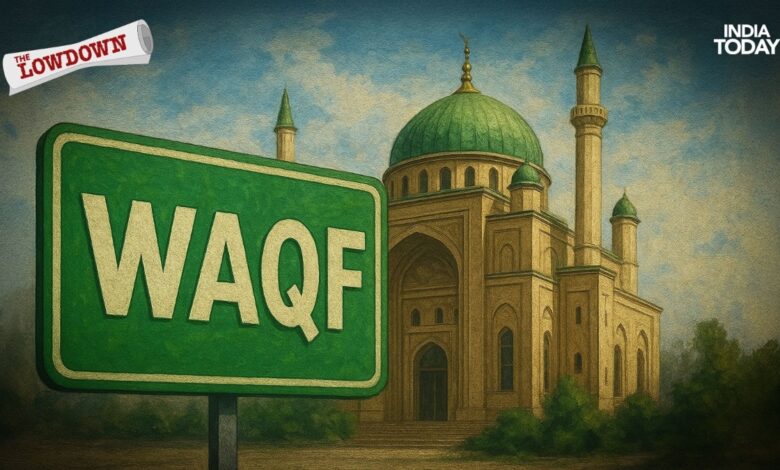Waqf Amendment Bill became Law, President Draupadi Murmu approved – WAQF Amendment Bill Banks Law President Droupadi Murmu Gives Assent NTC

The Waqf Amendment Bill 2025 has now become a law. This bill has been approved by President Draupadi Murmu. Before the President’s approval, the Waqf Bill was passed from both houses.
The government said in a notification, ‘The Waqf Amendment Act passed by Parliament has been approved by the President on 5 April 2025 and is published for general information: Waqf (Amendment) Act, 2025.’
The Waqf (Amendment) Bill was passed on Friday morning after a long debate in the Rajya Sabha, in which there was a sharp noise between the ruling party and the opposition. In the Rajya Sabha, the bill was debated for about 14 hours and 128 votes were cast in favor and 95 votes in protest, after which it was passed. Earlier, the Lok Sabha had approved after about 12 hours of debate, in which 288 votes and 232 votes were in opposition.
Opposition parties protested
During the discussion on the bill in both houses, strict objections were expressed by the opposition parties, which termed the bill as anti -Muslim and unconstitutional, while the government replied that historical reforms would benefit the minority community. Transparency will be ensured in managing Waqf properties.
4 petitions filed in Supreme Court
At the same time, on Saturday, 2 more petitions were filed in the Supreme Court seeking to ban the provisions of this law or ban it. One petition has been filed in Delhi by Aam Aadmi Party MLA and Amanatullah Khan, accused of scam and embezzlement in Waqf, while the other petition was filed by the Association for the Protection in the Matters of Civil Rights.
Earlier on Friday, Congress MP Mohammad Javed and All India Majlis-e-Ittehadul Muslimeen (AIMIM) President Asaduddin Owaisi on Friday challenged the validity of the Waqf (Amendment) Bill in the Supreme Court, saying that it violates the constitutional provisions.
Javed’s petition alleged that the bill imposes arbitrary restrictions on Waqf properties and their management, which weakens the religious autonomy of the Muslim community.
The petition filed through advocate Anas Tanveer states that it “discriminates against the Muslim community by imposing such restrictions which are not present in the administration of other religious institutions”.
Lok Sabha MP from Kishanganj in Bihar Javed was a member of the Joint Parliamentary Committee set up on this bill and alleged in his petition that the bill “banned the construction of Waqf based on the period of religious conduct of a person.”
In his separate petition, Owaisi said that the bill has taken away various security to Waqf and Hindu, Jain and Sikh religious and charitable arrangements.
The petition of Owaisi filed by advocate Lajfir Ahmed said, “Reducing security to Waqf and maintaining them for religious and charitable arrangements of other religions is hostile discrimination against Muslims and is a violation of Article 14 and 15 of the Constitution, which restrictions on the basis of religion.”
Aam Aadmi Party MLA Amanatullah Khan challenged the constitutional validity of the Waqf Bill in his application and said that the amendment in the Waqf Act-1995, which has passed a new bill, violates the fundamental rights contained under Articles 14, 15, 21, 25, 26, 29, 30 and 300-A Article 14, 15, 21, 25, 26, 29, 30 and 300-A of the Indian Constitution.
AIMPLB announces protest
Apart from this, the new law is also being opposed by the All India Muslim Personal Law Board (AIMPLB). AIMPLB has announced a campaign and protests across the country, aimed at combating misinformation and promoting peaceful activity.




